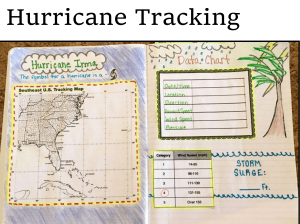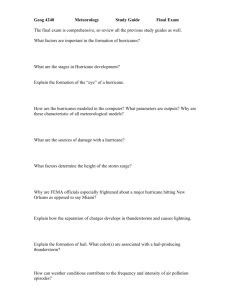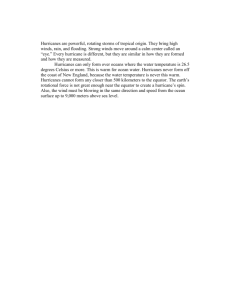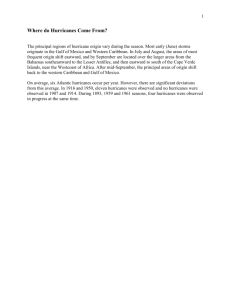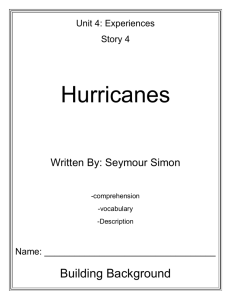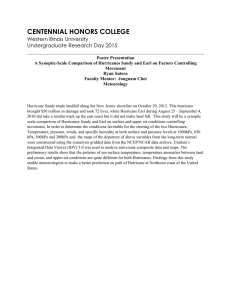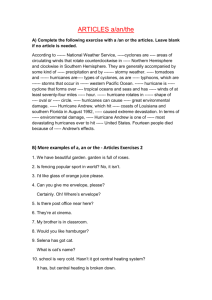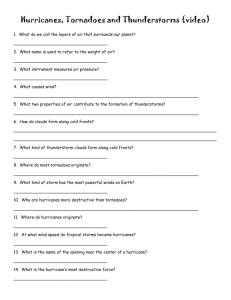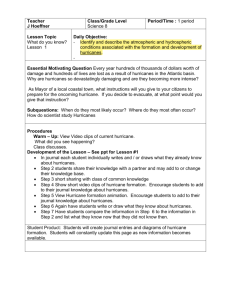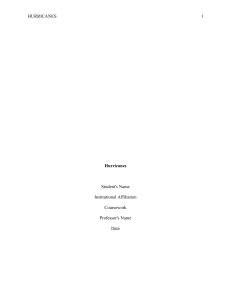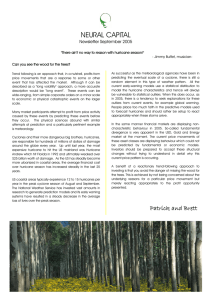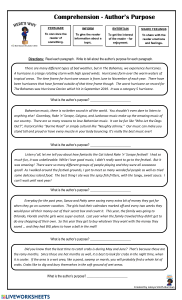Simulating Hurricane Tracks and Strike Probabilities
advertisement
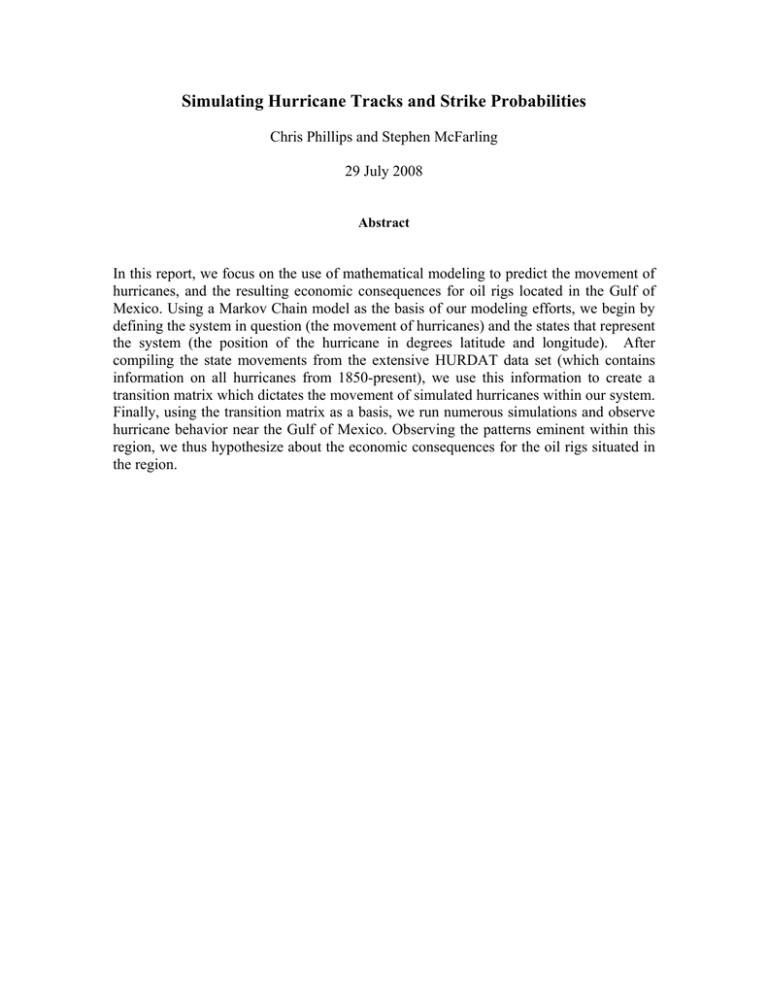
Simulating Hurricane Tracks and Strike Probabilities Chris Phillips and Stephen McFarling 29 July 2008 Abstract In this report, we focus on the use of mathematical modeling to predict the movement of hurricanes, and the resulting economic consequences for oil rigs located in the Gulf of Mexico. Using a Markov Chain model as the basis of our modeling efforts, we begin by defining the system in question (the movement of hurricanes) and the states that represent the system (the position of the hurricane in degrees latitude and longitude). After compiling the state movements from the extensive HURDAT data set (which contains information on all hurricanes from 1850-present), we use this information to create a transition matrix which dictates the movement of simulated hurricanes within our system. Finally, using the transition matrix as a basis, we run numerous simulations and observe hurricane behavior near the Gulf of Mexico. Observing the patterns eminent within this region, we thus hypothesize about the economic consequences for the oil rigs situated in the region.
